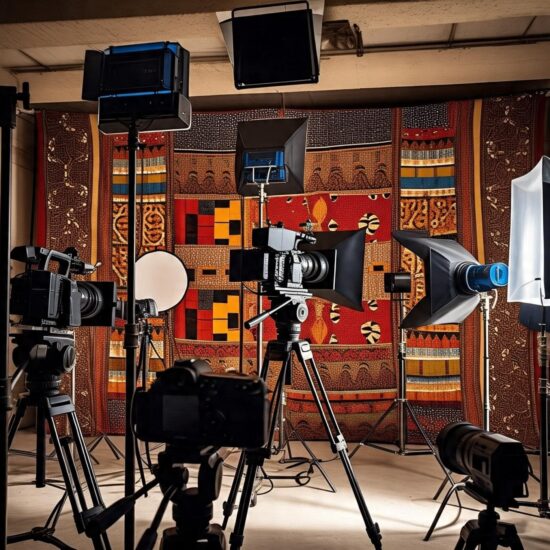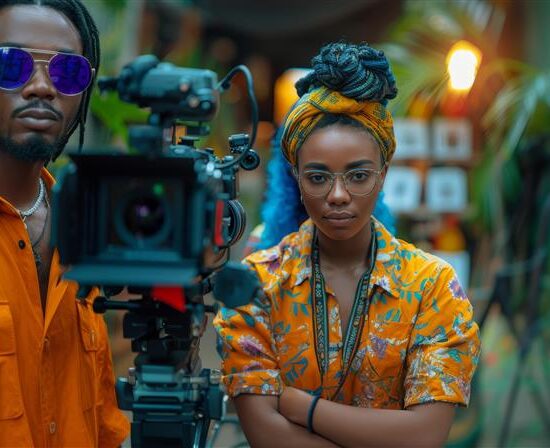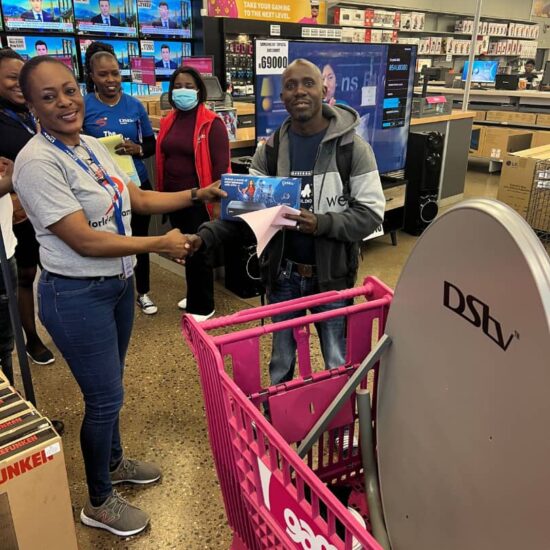
With jaw-droppingly beautiful scenery, unparalleled wildlife, colourful people and rich cultural traditions, is it any surprise that the soils of Africa have nourished a growing film industry that is set to become a dominant employer and economic contributor in the future?
According to UNESCO, the African film and audiovisual industries currently employ around 5 million people and account for US$5 billion in GDP across the continent. Given Africa’s unique offerings, well suited to film production, UNESCO says the sector has the potential to create more than 20 million jobs and contribute US$20 billion to the continent’s combined GDP.
But there is a thorn in the side of this sector, that if left unchecked will fester and cause its ultimate demise. That thorn is content piracy – the illegal recording and distribution of original African video content.
UNESCO estimates that the continent’s creative sector loses US$1.5 billion annually to piracy. Two of the biggest film markets, Nigeria and South Africa, suffer annual losses of around US$3 billion and US$321 million respectively.
African content value system
Zimbabwean filmmaker and actor, Ben Mahaka, who has been victim to piracy, says the starting point for this should not necessarily be the pirates, but the consumers of pirated content.
“Africans need to understand the value of their own cultural heritage, and must value themselves first. If we don’t have that, we won’t have the strength to pull out those stories and share them with the world. Authenticity is key to maintaining and infusing value in our stories.
“So we need to take a step back, accept who we are and then move forward from there. That means taking off the wigs, losing the mannerisms and the accents, and stop trying to be something that we’re not. We should not be ashamed to shout about where we come from. Our origins are villages, and we should celebrate that,” he says.
When communities are proud of their stories, and their cultural and creative heritage, they want to protect that. Original African content then has an inherent value. When such a value system is created, consumers are less likely to want to support pirates over producers.
Dr Gopolang Ditlhokwa, film and television lecturer at the University of Botswana, says safeguarding our cultural stories and ancient wisdom requires us to rethink what it means to own, transmit and protect knowledge.
“Too often, we treat piracy as a surface-level problem of access and theft. But it is far more structural, as it speaks to the way we have failed to create cultural economies where creators are valued for the worlds they carry.
“When a film is pirated, the copying that happens removes it from the social and historical relations that gave it meaning. It gets completely uprooted. What we lose in that process is authorship, intention, and the cultural grounding of the work itself, more than revenue. This is a form of cultural dispossession that simulates older forms of colonial extraction, only now dressed in digital convenience,” Dr Ditlhokwa explains.
A threat to African sovereignty
He adds that piracy is not just a financial threat, but a cultural wound. When local films are pirated, more than income is stolen; filmmakers are stripped of their labour, language, memory and any meaning that was carried in that work.
“For African storytellers, especially those working in local languages or anchored on indigenous knowledge systems, films exercise continuity. Piracy interrupts that. It breaks the fragile chain between the creator and the community, between tradition and innovation. It discourages investment, weakens morale, and ultimately pushes creators away from telling stories that matter.
“When local productions fade, so do the languages, customs and histories they carry. This causes generational damage. If we are serious about preserving African storytelling, we must treat piracy as a structural problem, beyond it being just a criminal one. It is a threat to cultural sovereignty,” he says.
Higher quality productions
A vital part of building this value system is the quality of the content itself. Higher quality productions naturally carry a premium value within the system, warranting greater consumer support in protecting the content.
“In Namibia we are starting to see good quality productions coming out and making their way onto channels like Africa Magic and into the Africa Magic Viewers’ Choice Awards (AMVCAs). This year three Namibian productions were nominated for an AMVCA. There’s a beauty in witnessing other types of content beyond what people have traditionally associated with African film, making it onto these platforms. I think producing better quality productions plays a role in protecting our content,” says Award-winning Namibian actor, Adriano Visagie.
This year, the Namibian productions Lukas, Skeleton Coast and Walvis Tale, the short documentary depicting the deep connection between the ocean and the people of Walvis Bay were all nominated for AMVCAs.
Changing the system
Another potential solution is introducing the studio system used in Hollywood in the 1930s and 1940s, where movie studios controlled all aspects of film production.
Malawian producer and director, Shemu Joyah, says this system could help keep content out of the hands of pirates.
“The studio system helped filmmakers preserve their work while still making money from it. They were able to control distribution and receive a percentage back from the movie houses. Distribution is a challenge for independent filmmakers, so this could be a solution. Because if you’re not distributing your content through the right channels where consumers can easily access it, you must know a pirate will be there waiting to distribute it for you illegally,” says Joyah.
He proposes another, less orthodox solution: working with the pirates themselves. Joyah’s theory is that by turning the pirate distributor into a formal distributor, the industry could just address both challenges of distribution and piracy at the same time.
“One of the reasons for piracy is this lack of access to distribution channels. But pirates have an excellent distribution network. So the pirates are in one room and the African filmmakers are in the other. I’m proposing that we bash the wall down between the two and see how they can work together. Because if we could get part of our money back as filmmakers, we can plough that into making more films. More films equals more money for the creatives and the distributors, leaving less room for illegal copies where neither or us make any money,” Joyah explains of what he calls a potentially symbiotic relationship.
An African solution
Stronger anti-piracy laws and their enforcement are no doubt needed across the continent to tackle the current situation head-on. However, although content piracy is not a uniquely African problem, looking at it through a continental lens could provide a longer-term solution.
Dr Ditlhokwa says creating ecosystems of cultural dignity could offer a more sustainable approach to piracy. “That means, funding archives that pay royalties to living creators; making it mandatory for storytelling to be part of formal education as a form of intellectual inheritance; and developing local platforms where circulation is structured around care, ownership and cultural context, instead of just promoting virality.
“Most importantly, we must restore storytelling to communities through shared custodianship. Let the community hold the story, let them benefit from its circulation, and let the storyteller remain central to its life. Piracy thrives where value is not understood. To stop it, we must revalue what we already know,” he further explains.
Whatever the ultimate solution, creatives agree it must come from within Africa. We cannot rely on external forces to safeguard our stories. We need to contribute to the future of our creative industries, be proud of our heritage and play our part in preserving our original content. Or be prepared to lose it all together.
Piracy is more than theft, it is cultural erasure. It strips African filmmakers of their stories, their voice, and their dignity. To protect our creative sovereignty and realise the true economic potential of African content, we must build a system that values and defends original African work at every level. Collectively, we must stand together in fighting piracy.” Frikkie Jonker, MultiChoice Group Africa Anti-Piracy Director.




